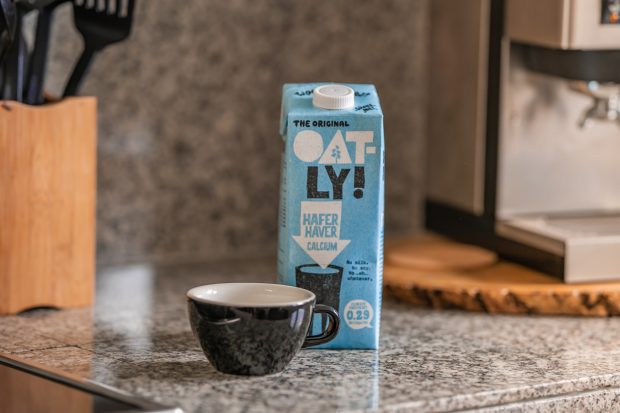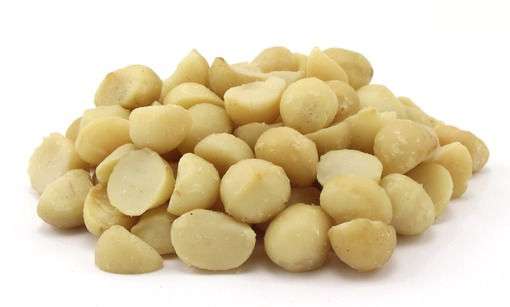Over the years, society has become more conscious of its health, including what we drink and eat. One of the biggest health food trends is the rise of manufactured plant-based products, including plant-based milk. This has resulted in cow’s milk, for example being replaced with these dairy-free, lactose-free, and vegan-friendly alternatives. This is all very much on trend with millions of people all around the world pouring it into their coffee or cooking with it. But are these manufactured plant-based products as healthy as we are led to believe?
According to Strategic Market Research, the global plant-based milk market size was $35 billion in 2021. It is expected to grow at a compound annual growth rate (CAGR) of 15% from 2021 to 2030 to reach USD 123.1 billion by 2030.
Why Do We Opt for Plant-Based Milk?
There are numerous reasons why people may opt for plant-based milk. From lactose intolerance to veganism and the perceived health benefits, plant-based milk is a substitute that has taken food markets, and the milk aisle, by storm. But just how healthy are these different alternatives compared to cow’s milk?
Melissa Majundar, a spokeswoman for the Academy of Nutrition and Dietetics says, “In general, these non-dairy milk have been promoted as healthier, and that’s not necessarily the case.”
Plant-based milk is typically made by soaking the nut, grain, or other main ingredients, then straining the liquid/”milk”. Whether plant-based milk is healthy for you seems to be dependent on which you choose to drink, and how much you’re consuming.
There are over 17 types of plant-based milk available, but the most popular ones on the market are Almond Milk, Oat Milk, Soy Milk, Rice Milk, and Coconut Milk.
In this article, we have taken a look at key wellness indicators that influence the benefits or downsides of plant-based milk products. This includes a brief description and analysis of each of these milk, comparing them to see how they differ and weigh against cows’ milk, and just how healthy/nutritious they are for you.
Is manufactured plant-based milk good for me?
It is not a slam dunk that all manufactured plant-based milk products are healthy. It will depend on which type of plant milk you drink, whether it’s fortified, how many added sugars it contains, and how it fits into your overall diet.
If you are substituting cow’s milk because you are lactose intolerant, vegan or you just don’t want to drink cow’s milk, but you want the same nutrient exchange, then it’s important to understand that most plant milks do not contain the same nutrients as cow’s milk, no matter that it may look the same. And some of the sweetened versions have more added sugar than a doughnut!
Glycemic Index Comparisons
One of the ways to understand the impact of these manufactured plant-based alternatives on our health is to look at the respective glycaemic indexes. The Glycaemic Index (GI) is a rating system for foods containing carbohydrates, which shows how quickly they will affect your blood sugar (glucose) levels when consumed. So the lower the GI of a specific food, the lower its impact on your glucose levels.
Foods that are high in refined carbs and sugar typically have a high GI, while foods that are high in protein, fat, and fiber typically have a low GI.
Benefits of a Low GI Diet
Reduced cholesterol levels: Consuming less GI results in lower levels of total and LDL (bad) cholesterol, which both act as risk factors for heart disease. Globally, around 110 million men and 80 million women have coronary heart disease. Coronary heart disease kills an estimated 9 million people each year. Heart disease is the leading cause of death for men, women, and people of most racial and ethnic groups in the United States. In actual fact, one person dies every 34 seconds in the United States from cardiovascular disease.
Improved blood sugar regulation: Low GI foods have been shown to lower blood sugar levels and improve blood sugar management, which is important, especially for those with Type 2 Diabetes. Blood sugar control has been shown to prevent and delay the onset of health complications, including strokes, heart disease, and damage to the nerves and kidneys.
GI of different kinds of milk. From lowest to highest.
- Macadamia Milk: Macadamia Milk is considered the lowest GI, with a rating of 10.
- Soy Milk: Soy milk is considered a low GI, with a rating of just 30.
- Almond Milk: Although the GI of almond milk may vary depending on the brand and the amount of sugar added, the average GI for unsweetened almond milk is 30.
- Cow’s Milk: Old-fashioned cow’s milk is considered low GI, with a rating of 34.
- Coconut Milk: Coconut milk is considered a low GI, with a rating of 40.
- Rice Milk: Rice milk is also considered a high GI, with a rating of 85.
- Oat Milk: Oat milk is considered a high GI, with a rating of 105.
Nutritional Value Compared
| Calories | Total Fat | Carbohydrates | Sugars | Protein | |
| Cows Milk | 149 | 7.9g | 12g | 12g | 8g |
| Almond Milk
Sweetened Unsweetened |
62.530 | 2.8g2.6g | 7.5g1.1g | 7.5g0.2g | 1g1.1g |
| Oat Milk
Sweetened Unsweetened |
14070 | 2g0.5g | 25g15g | 8g0g | 4g2g |
| Soy Milk
Sweetened Unsweetened |
9733 | 4.3g1.7g | 6.8g1.6g | 6.8g0.6g | 7.3g3.5g |
| Rice Milk
(No sweetened alternative) |
115 | 2.4g | 22.4g | 12.9g | 0.7g |
| Coconut
Milk Sweetened Unsweetened |
74
45 |
5g
4.8g |
7g
0.6g |
6g
0g |
0.5g
0.5g |
| Macadamia Milk
Sweetened Unsweetened |
87
50 |
4.8g
4.5g |
9.5g
0.5g |
6.5g
0g |
0.5g
1g |
*Nutritional Information was obtained from nutrionix.com and verywellfit.com
Almond Milk
Made from almonds, this is probably the most popular plant-based milk alternative. Although it is low in calories and is typically fortified to be a source of calcium and other vitamins, it is not a good source of protein.
Pros
It has the lowest calorie count (the unsweetened option) and is usually fortified to be a good source of Vitamin A, Vitamin B, and Calcium. It, therefore, supports weight maintenance, and due to its low phosphorus and potassium content, it is ideal for those with chronic kidney disease.
Cons
Store-bought almond milk only consists of 2% almonds, with it being watered down with fillers and thickeners such as carrageenan to make it appear creamy. Carrageenan is a thickener and beverage stabilizer derived from red algae, which has been shown to cause gastrointestinal inflammation and contribute to cancer. Research has also linked its presence to digestive issues such as Irritable Bowel Movement and poor blood sugar control.
Oat Milk
Made with whole oat grains by extracting the plant material with water, oat milk is widely opted for due to its natural sweetness and natural creamy consistency. It has high amounts of carbohydrates due to the fact that it is sourced from a grain rather than a nut.
Pros

Photo by Leon Seibert on Unsplash
Oat milk has been shown to contain twice as much dietary fiber as cow’s milk, which makes it ideal for aiding a healthy gut and digestive function. It also contains potassium, zinc, and magnesium, which are all important for the formation and strengthening of healthy bones.
Cons
The high carbohydrate and calorie content can be a problem for those working on managing their blood sugar levels. Oat milk is considered a high GI, with a rating of 105.
Lori Zanini, a registered dietitian nutritionist, and certified diabetes expert, says that drinking oat milk can lead to a quick elevation in your blood sugar, which is a concern if you are diabetic or want to reduce your risk of Type 2 Diabetes.
Zanini says “when it comes to blood sugar management, it’s important to realize that liquids digest much faster than foods… (thus impacting) our blood sugar in a different way, much more quickly.”
People with celiac diseases and disorders of the stomach, intestine, and other parts of the gastrointestinal tract should be cautious as oat milk can cause side effects such as gas and bloating.
Soy Milk
This is made by blending soaked soybeans with water and straining the solids, leaving a smooth, milk-like liquid. Since it comes from a plant, this milk is naturally cholesterol free and low in saturated fats.
Pros
It is rich in Omega-3 fatty acids (healthy fats the body cannot produce on its own), and has been linked to reduced risks of Alzheimer’s disease and dementia. It carries almost the same amount of protein as cow’s milk, with lower calories and fat content.
Cons
Being one of the “Big Nine” food allergies, soy milk can pose a health risk for many. Also, 94% of soy grown in the U.S. is genetically modified.
Also, soy contains phytates, which are anti-nutrients that can block the absorption of certain minerals like iodine, zinc, iron, magnesium, copper, and chromium. So a high intake of soy milk can increase your risk of developing nutritional deficiencies.
Rice Milk
Made from milled rice and water, this is the least likely of all milk products to cause allergies, making it an ideal choice for people with lactose intolerance or allergies to nuts, milk, or soy.
Pros
It contains no cholesterol, which is good for those struggling with obesity and cardiovascular issues (if one doesn’t consume too much of it). In moderation, it can lower your risk of atherosclerosis and strokes.
Cons
It contains the most carbohydrates per cup, so it is the least viable option for those with diabetes. Rice milk is considered a high GI, with a rating of 85.
Also, it is recommended that you don’t solely rely on it as a milk replacement since it is a source of arsenic.
Long-term exposure to arsenic from food and drink can lead to cancer and skin lesions, and it has also been associated with cardiovascular disease and diabetes.
Coconut Milk
Made from filtered water and coconut cream, which is made from grated mature coconut flesh.
Pros
Along with it being safe for those with nut allergies, it contains lauric acid, which is converted into a compound called monolaurin. This compound acts as an anti-fungal, antimicrobial, and anti-inflammatory compound that can destroy a wide range of disease-causing organisms.
Cons
Those at risk of high cholesterol and cardiovascular diseases are advised to refrain from consuming too much coconut milk due to its saturated fat content.
Also, its monosaccharides and polyols can increase one’s risk of Irritable Bowel Syndrome.
Macadamia Milk
Made from Macadamia Nuts, this is a thick, rich and creamy non-dairy milk containing an average of 4% Macadamia Nuts per carton.
Pros: This plant-based milk has the lowest carb count amongst the listed plant-based milks (with the unsweetened option containing just 0.5g). It is non-GMO and contains omega-3 and omega-6 fatty acids, which provide structural support to the body’s cell membranes and their flexibility, which is important for cells to function and communicate effectively. It also contains gut-healthy nutrients such as fibre and polyphenols.
 Cons: Macadamia Nuts contain Selenium, which, if had in high dosages, can cause severe side effects. Known as Selenium toxicity, this can lead to difficulty breathing, kidney failure, heart attacks, hair loss, nausea, and irritability. Also, it is not suitable for those with nut allergies. With Macadamia Nuts being the most expensive nuts on the market, this milk can also be quite costly.
Cons: Macadamia Nuts contain Selenium, which, if had in high dosages, can cause severe side effects. Known as Selenium toxicity, this can lead to difficulty breathing, kidney failure, heart attacks, hair loss, nausea, and irritability. Also, it is not suitable for those with nut allergies. With Macadamia Nuts being the most expensive nuts on the market, this milk can also be quite costly.
What’s the verdict?
Plant-based milk comes with benefits and offers vegans an alternative to animal-based milk products. However, we need to be conscious that it is not as healthy as many marketing campaigns lead us to believe.
Also consuming high volumes of it can lead to side effects
While plant-based milk is healthy, it is not necessarily an ideal replacement for old-fashioned cow’s milk if you are choosing dairy free for your health’s sake. As to which plant-based milk is the most ideal way to add to your diet, it is dependent on your individual dietary needs and restrictions.
Manufactured plant-based milk isn’t comparable to cow’s milk nutritionally, especially because the vitamins and minerals it contains are naturally occurring. That’s why it’s important to look at the different options and choose the one which caters to your dietary needs.
Another consideration is whether cow’s milk or plant-based, is not essential in our diet, so if you’re lactose intolerant, you can get all your calcium and protein intake from a diet rich in fruits, vegetables, and whole grains. Or you can opt to make your own plant-based milk.
Homemade Plant-Based Milk
Homemade plant-based milk is a healthier, more ideal option because there are no added sugars, preservatives, or potentially harmful chemicals that manufactured plant-based products may contain. You control exactly what goes in, which guarantees you quality, freshness, and peace of mind.
Homemade plant-based milk only requires 2 ingredients; the nut, seed, or oats, and water. It is made by first soaking your chosen main ingredient in large volumes of water for up to 12 hours, then blending in a high-speed blender until smooth and creamy. You can even add a sweetener of your choice, from honey to maple syrup or fruit, and the options are endless. Below are summaries of how the different options are prepared and made:
- Almond Milk: 100g Almonds soaked overnight in 1 liter of water
- Oat Milk: 50g Whole Oats soaked overnight, then blend with 1 litre of hot water to avoid a slimy texture
- Soy Milk: 100g Organic Soy Beans soaked in 8 hours per litre of water
- Rice Milk: 100g tbsp brown rice to be blended with 1 litre of hot water just off the boil.
- Coconut Milk: 160g shredded coconut to be blended into 3 cups of water, then strained.
MAIN IMAGE CREDIT:dhanya purohit on Unsplash
References
- Haas, R., Schnepps, A., Pichler, A. and Meixner, O., 2019. Cow milk versus plant-based milk substitutes: A comparison of product image and motivational structure of consumption. Sustainability, 11(18), p.5046.
- Vanga, S.K. and Raghavan, V., 2018. How well do plant based alternatives fare nutritionally compared to cow’s milk?. Journal of food science and technology, 55(1), pp.10-20.
- Silva, A.R., Silva, M.M. and Ribeiro, B.D., 2020. Health issues and technological aspects of plant-based alternative milk. Food Research International, 131, p.108972.





![women [longevity live]](https://longevitylive.com/wp-content/uploads/2020/01/photo-of-women-walking-down-the-street-1116984-100x100.jpg)









